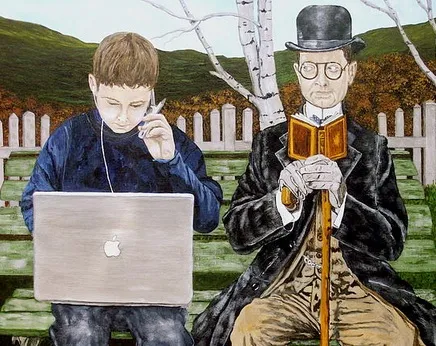Hiring experienced employees for your startup: Part 1 - Challenges with your existing team

In your startup journey, there will come a stage when you feel the need to hire experienced professionals. Yes, young blood comes with a lot of energy and passion but you will ultimately also need additional skills, depth of knowledge and networks that come from experience.According to estimates from YourStory Research, the number of people employed by Indian startups is less than 0.15 Mn. The recently concluded Awesome Startup Workplaces Awards also suggest that over 60% of startup employees have less than 5 years of total work experience and less than half have ever worked in a startup before. So whether you like it or not, most of your experienced talent will come from the corporate sector.
Employing highly experienced professionals from the corporate sector comes with its own set of issues and challenges. Many of these challenges come from the impact of hiring the new, experienced hire, on your existing team. It is critical that you are aware of these challenges before you go out and bring your Mr Experienced on board.
We love our founder, who the f*** is this?
Younger employees feel the need to find an experienced mentor with whom they develop personal bonds beyond the confines of professional relationships. A lot of this respect and admiration, especially in Asian cultures, comes from our family structures where parents and older kin continue to play the role of guide/ advisor even after we become adults.
Apart from the founders, most early stage startup teams comprise young, relatively inexperienced employees. As the captain of your startup ship with a very young crew, you will often find yourself becoming this sort of ‘parent figure’ for your team, with employees constantly vying for your attention.
Then, when you go out and hire someone who is highly experienced (maybe even more than you), it creates a natural scepticism of this person among your team. When they see you spend a lot of time with Mr. Experienced, they may begin to feel a sense of distrust and jealousy, which could even translate to dislike for the new person.
We helped build this startup, don’t give us s**t
Building from scratch, startups experience massive growth in a short period. Young employees who have been part of this growth, get massive amounts of exposure and learning in a short period of time. Having given their heart and soul to the startup, they feel a natural sense of authority and accomplishment.
In such a scenario, if a new, albeit experienced person suddenly comes into the picture and starts giving them ‘gyaan’, their innate tendency will be to scoff at it. This is especially true when the new person comes from a corporate background, having never worked at a startup before. They may tend to discard what Mr Experienced is saying because they feel that person doesn’t know anything about the company or the circumstances in which the startup operates.
Is this the end of the road for me?
All of us aspire for growth in our jobs and in the case of a startup, your highly ambitious and driven young employees, will expect this even more. After all, they have helped build the startup and take it to the stage where you could afford to hire more highly paid experienced employees in the first place.
When startups hire experienced employees with great corporate credentials, they make a lot of noise about it. After all, it becomes a validation of the startup’s performance and potential that someone left their high flying corporate careers to join them. As a founder, you will also want to showcase your new acquisition so that the external world sees them as a key stakeholder, taking some of the burden of being the sole face of the company.
But all this hype around Mr Experienced will raise a lot of questions for the younger employees about their own growth and value to the company. Questions like – “What’s next for me; will I even get a promotion now; do you value me and my work?” – may tend to spring up. They could begin to feel threatened, leading to situations where they will question the new person’s credentials and challenge their opinions.
The bottom line
All the above issues within your internal team could be devastating for employee morale and productivity. The young, old-timers may tend to start finding even the smallest faults in the person and start looking for opportunities to put them down. Given that you probably hired the experienced person for a more strategic role, there may be gossip among younger employees about how the new person is a know-it-all who does nothing. Some employees may even openly tell you that they refuse to work with the new person.
For the new hire as well, this scepticism and animosity from the existing team could be highly de-motivating. Having climbed the corporate ladder to a point where authority and influence on junior employees came naturally with the role, this rejection may lead to a situation where they mentally ‘check out’ from your startup. This could lead to lower effectiveness of Mr Experienced, which will only validate the team’s concerns.
The ultimate effect on team performance is quite the opposite of what you had wanted when you hire Mr Experienced. In my next article, I will share some tips on how to manage the onboarding of experienced employees to avoid the above catastrophe.







